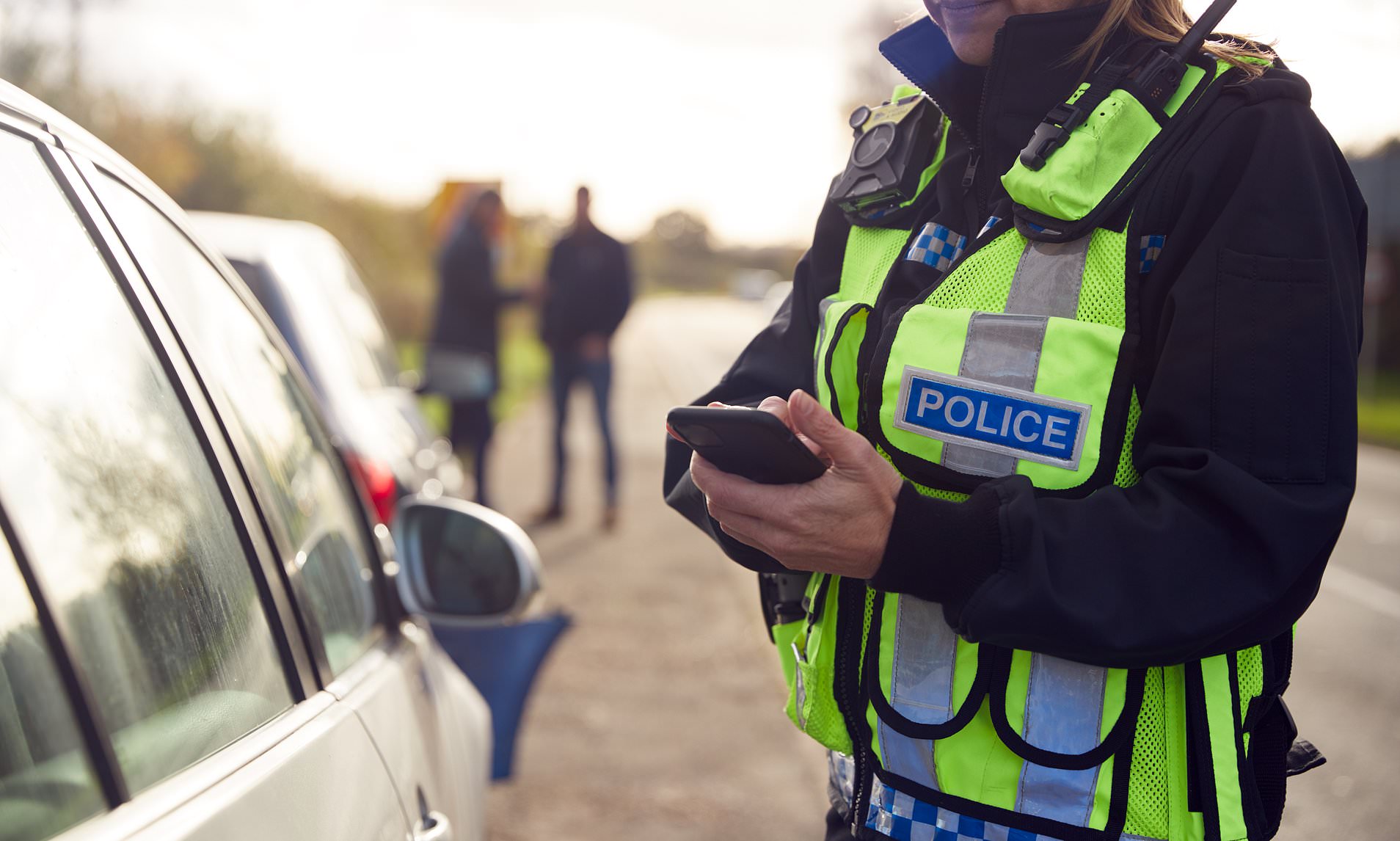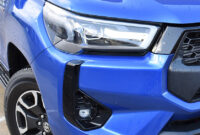The number of road traffic officers in England and Wales has fallen by more than a fifth in the last decade as the increasing reliance on camera enforcement sparks major concerns over who is policing the nation’s highways.
There were 3,889 dedicated ‘cops in cars’ across forces at the end of March, analysis by the RAC found.
That is down 22 per cent on the 5,005 officers in road policing roles on the same date in 2015, according to Home Office figures.
But while officer numbers are dwindling, dangerous driving convictions are on the rise, bilking at petrol stations and the use of ghost number plates are becoming prevalent, and motor theft is going widely unpunished.
Simon Williams, RAC head of policy, called for the reduction in traffic officers to be reversed or ‘significant new measures’ to crack down on those who break road rules.
He said: ‘It’s clear from our analysis that the number of officers dedicated to roads policing is at a 10-year low which can only be seen as bad for the enforcement of motoring laws.
‘Drivers we’ve surveyed express strong concerns about the dangers posed by others on the road breaking traffic laws, whether that’s speeding, drink or drug-driving, using a handheld mobile phone, driving in an aggressive way or not having tax or insurance.’
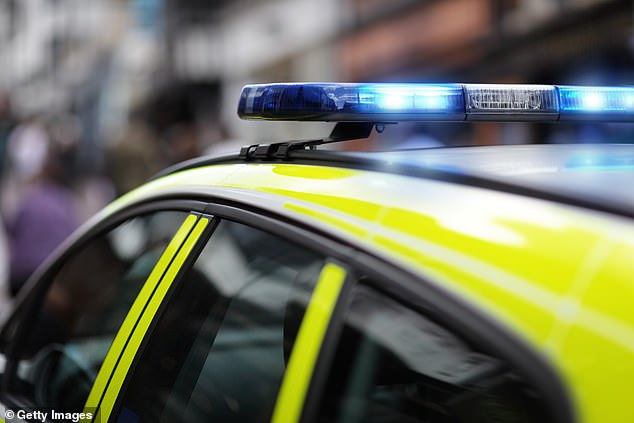
While the number of roadside cameras has more than doubled in the last decade, the number of officers deployed to camera partnership units focused on mobile speed enforcement is also shrinking.
The RAC’s analysis found a decline in ‘casualty reduction partnership’ personnel from 186 in March 2015 to only 144 in the same month this year.
A spokesman for the Home Office said that while the number of ‘primary role’ road cops is in decline, other officers do take part in traffic enforcement.
Speaking to Auto Express, they said: ‘The Chancellor has announced a real-term increase in police spending power over the next three years.
‘As usual, more detail on force funding allocations will be set out at the provisional police settlement later this year.’
But Williams says an ever-increasing reliance on camera technology to police our roads is likely seeing more motorists take risks believing they won’t be caught.
‘While automatic number plate recognition cameras have become much more common in the last decade, not seeing as many officers in police cars lessens the fear of being caught breaking the law, which may explain why so many law-abiding drivers are concerned about the behaviour of others they share the road with,’ he said.
‘The deterrent value of ‘cops in cars’ should not be underestimated.’
And endorsements and vehicle crime statistics support the RAC’s concerns.
Fewer police officers on our roads has coincided with a jump in dangerous driving offences.
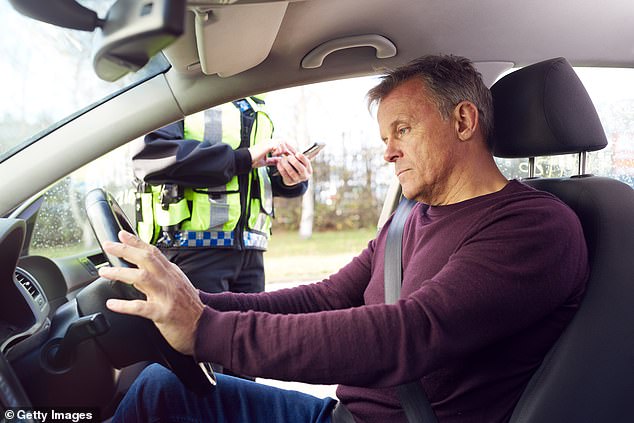
In the 12 months up to March 2025, 5,303 people were convicted of dangerous driving.
A decade earlier, just 3,277 received endorsements for dangerous driving, representing a 62 per cent increase.
The recent spike in vehicle thefts is also widely going unpunished, with DVLA records suggesting that around two in five stolen motors were recovered last year.
‘Bilking’ – when motorists drive away from fuel stations without paying for petrol or diesel – has surged since the pandemic, while illegal number plates and cloned registrations are also helping a record number of people evade Automatic Number Plate Recognition cameras to dodge motoring charges, avoid prosecution and evade detection while carrying out more serious crimes.
Recent statistics have shown that nearly 100 motorists a day were caught drink-driving in Britain over the last three years, though the total number of people over the legal limit would have been far higher with such low traffic officer numbers.
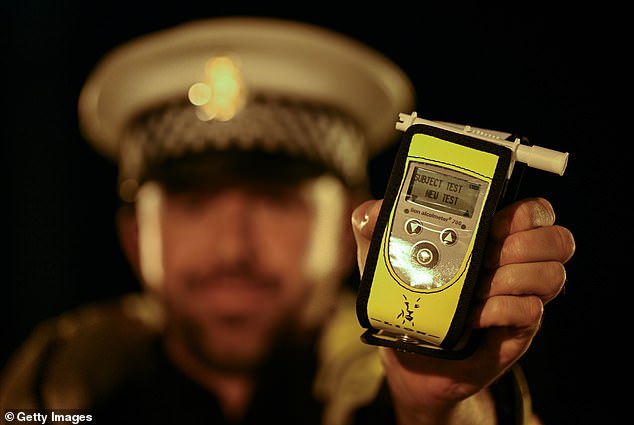
Even with the wider use of speed cameras, the number of drivers admitting to exceeding the limit still remains high.
Department for Transport data suggests that 43 per cent of drivers often exceed the speed limit on 30mph roads, while 44 per cent do so on motorways, compared to 45 per cent and 46 per cent in 2014.
On sections of single carriageway with a 60mph National Speed Limit, the data suggests speeding has increased from 7 per cent in 2014 to 9 per cent last year.
Williams said: ‘We’d very much like to see a return to having more officers on traffic duty, or significant new measures introduced to crack down on those who break the rules of the road.

